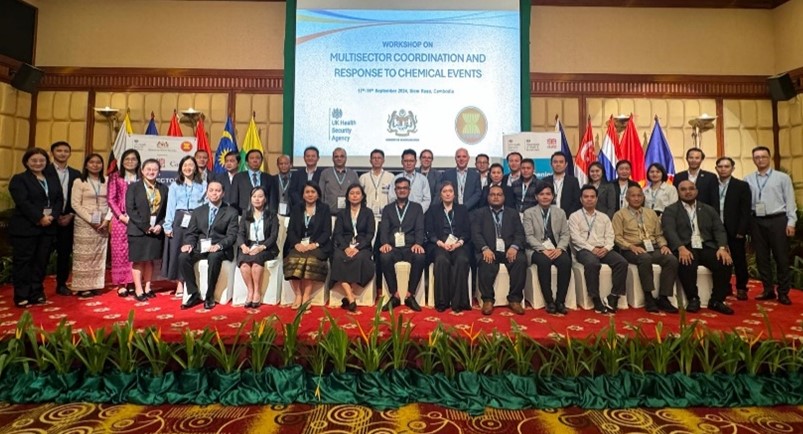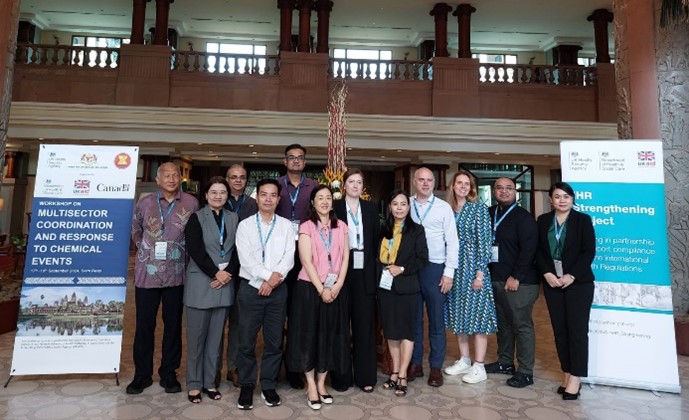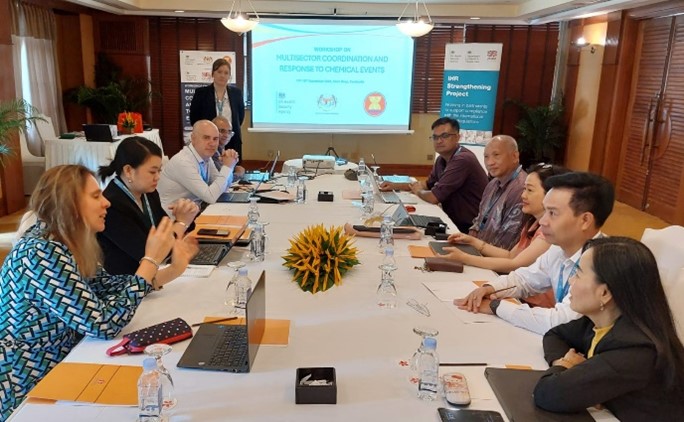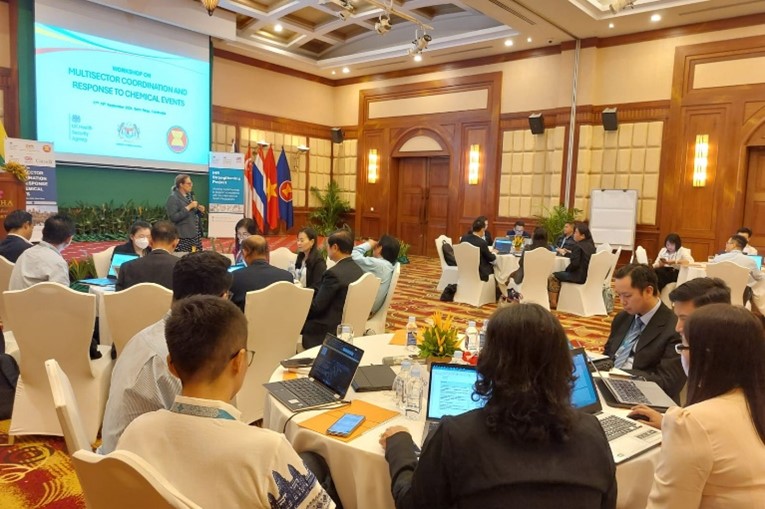
On 17-19 September 2024, the UK Health Security Agency (UKHSA) International Health Regulations Strengthening Project (IHR-SP) delivered foundational training in Siem Reap, Cambodia, as part of a workshop on multisector coordination and response to chemical events. Learnings from our previous multisector coordination workshop in Kuala Lumpur in February 2024 showed that there is a capacity gap for chemical emergency management among ASEAN Member States. Subsequently, the UKHSA’s experts from the Chemicals and Environmental Effects Department delivered the workshop to support capacity strengthening in this area, in partnership with the ASEAN Emergency Operations Centre (EOC) Network.

Bringing ASEAN Member States experts together
The workshop aimed facilitate professional connections within and across ASEAN Member States, whilst strengthening their capacity to detect and respond to chemical events in participating countries. Relevant stakeholders from eight ASEAN Member States - Brunei Darussalam, Cambodia, Lao PDR, Malaysia, Myanmar, the Philippines, Thailand, Viet Nam - took part. Attendees included representatives from Ministry of Health, Ministry of Environment, Ministry of Industry/Occupational Health, the Emergency Services, and Chemical Biological and Radiological and Nuclear (CBRN) national focal points.
A pre-workshop session was also conducted with ‘champions’ or focal points for chemical work from Cambodia, Lao People’s Democratic Republic (Lao PDR) and Viet Nam. This session ensured the alignment of workshop objectives and helped UKHSA IHR-SP strengthen the already established relationships, which will be useful for future engagements.

Improving knowledge, sharing best practice
During the workshop, IHR-SP’s chemicals experts Dr Haydn Cole and Sian Morrow delivered sessions on toxicology, detection and alert, surveillance, risk assessment, risk communication, and chemical incident response. This training sought to assist in establishing multisector coordination for chemical events, such as through the development of chemical emergency management plans or Standard Operating Procedures (SOPs).
The country representatives also took part in scenario-based group exercises to inform plans for response to and multisectoral coordination for chemical events at the national level. Working in groups, participants explored emergency response operations in their own country, identifying existing legal frameworks and mapping relevant stakeholders involved in chemical emergency management.
Experts from Malaysia, Thailand, Brunei Darussalam, and the Philippines also contributed through sharing of best practices and lessons learned of multisector coordination and emergency response operations to chemical events, which provided practical reference to other member states.

Commitment to building capacity
UKHSA received positive feedback from participants on completion of the workshop. Participants shared that the workshops were a good platform for sharing information and experience across the Member States. Some participants noted they would cascade the knowledge from this workshop to their national counterparts, and some expressed their wish for a similar workshop at national level involving the relevant government agencies in their country.
Through this workshop, IHR-SP solidified good relationships with participants who attended our previous workshop in Kuala Lumpur in February and established contact with new stakeholders for future engagements. UKHSA is committed to continue supporting ASEAN Member States to build their capacity in chemical emergency management through future workshops.
